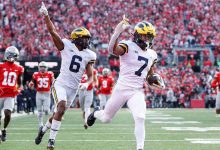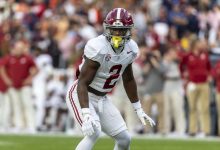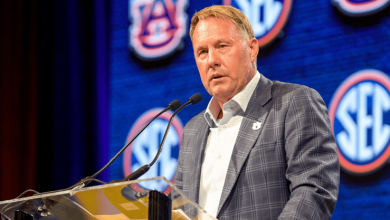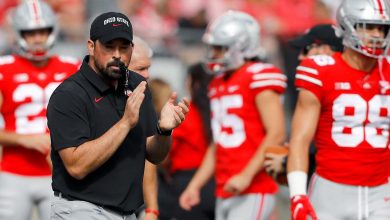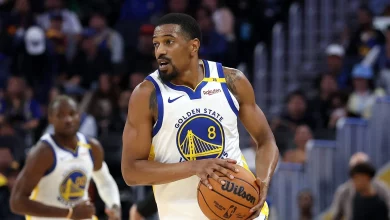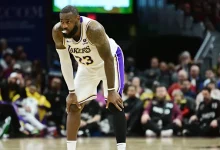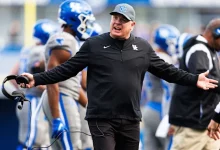Former Tennessee Vols defender gets released shortly after signing UDFA deal with Kansas City Chiefs
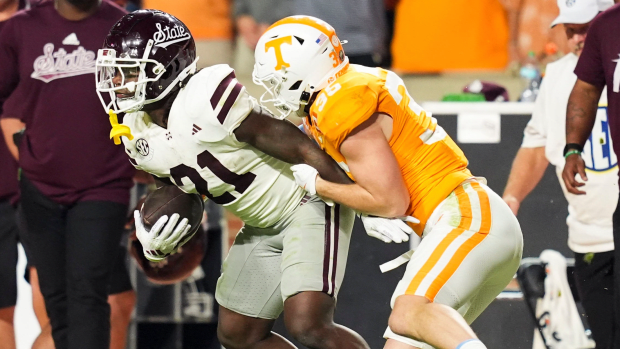
In the unforgiving world of professional football, dreams can soar high on draft weekend only to be crushed weeks, days, or even hours later. Such was the case for former Tennessee Volunteers standout linebacker Aaron Beasley, who found himself released by the Kansas City Chiefs shortly after signing with the team as an undrafted free agent (UDFA) following the 2024 NFL Draft.
Beasley, a productive and physical presence during his college career at Tennessee, had hoped to take the next step into the professional ranks. Despite being passed over in all seven rounds of the draft, he was quickly scooped up by the defending Super Bowl champions, a team known for its deep roster and competitive culture. But the excitement proved to be short-lived. Just days after rookie minicamp began, Beasley was released, his brief stint with Kansas City ending before it ever truly began.
This swift and sobering turn of events underscores just how volatile the path to an NFL roster can be—especially for UDFAs. Beasley’s story, while deeply personal, is not uncommon. Yet it highlights the harsh realities of trying to crack into one of the most elite professional sports leagues in the world.
Aaron Beasley’s Journey at Tennessee
Aaron Beasley arrived at the University of Tennessee with relatively modest expectations but left as one of the more consistent and reliable defenders in the SEC. A hard-hitting linebacker with a nose for the football, Beasley steadily rose through the ranks of the Volunteers’ defense to become a leader both on and off the field.
Over his five-year collegiate career, Beasley tallied over 250 tackles, numerous tackles for loss, multiple sacks, and key forced turnovers. His instincts, tackling efficiency, and leadership made him a mainstay on the defense and a trusted presence for the coaching staff.
His senior season was arguably his finest. He posted 84 total tackles, including 11 tackles for loss and 3.5 sacks, while contributing in pass coverage with several pass breakups. Beasley also received All-SEC recognition and earned a reputation as a tone-setter in Tennessee’s aggressive defensive schemes.
Yet despite his productivity and intangibles, Beasley did not hear his name called during the 2024 NFL Draft.
The Harsh Reality of the NFL Draft and UDFA Market
Beasley’s draft snub was both disappointing and indicative of broader trends in NFL scouting and evaluation. While his college stats were strong and his film solid, NFL teams often look for more than production when assessing draftable players. Factors like size, speed, scheme fit, injury history, and even upside potential weigh heavily.
Beasley, at 6’1” and 225 pounds, is considered undersized by traditional NFL linebacker standards. Though versatile and aggressive, he doesn’t possess elite athleticism, and questions lingered about whether his skill set would translate effectively to NFL defenses—particularly in coverage responsibilities.
Still, after the draft ended, the Chiefs extended an offer to Beasley as a UDFA. The move was seen by some analysts as a smart, low-risk acquisition: a player with strong college experience and a high football IQ coming into an environment where development and competition are the cornerstones.
Kansas City’s Linebacker Room and Competitive Camp Battles
The Chiefs have been one of the league’s most successful franchises in recent years, with a deep and talented roster that doesn’t offer much margin for error for fringe players. The linebacker position, in particular, is anchored by stars like Nick Bolton, Willie Gay Jr., and Leo Chenal—all young, fast, and effective in defensive coordinator Steve Spagnuolo’s system.
For Beasley, cracking that rotation—or even finding a niche on special teams—was going to be a steep climb. Rookie minicamps and OTAs are crucial for UDFAs to make an impression. Unfortunately, in that short span, it appears Beasley was unable to separate himself from the pack. Reports indicate that he may have struggled in coverage drills and lacked the explosiveness coaches were looking for in their hybrid linebacker roles.
Just days after minicamp opened, the Chiefs made their first round of roster adjustments, and Beasley’s name was among those waived.
What the Release Really Means
To many fans, a post-draft release may seem like the end of the road. But in the NFL ecosystem, it’s often just the beginning of a long and winding path. Being cut this early doesn’t necessarily mean a player lacks the ability to contribute at the professional level—it may simply mean the fit wasn’t right, or that other players were further along in their development.
The Chiefs, due to their depth and Super Bowl ambitions, carry a very high standard when it comes to evaluating young talent. They prioritize versatility, special teams value, and schematic fit. For a player like Beasley, the bar was exceptionally high.
Still, the early release offers Beasley an opportunity to reset and potentially catch on with another team—either during upcoming rookie camps, or as injuries inevitably affect rosters in the preseason.
The Broader Picture: Life as a UDFA
The UDFA route is a double-edged sword. While being undrafted allows players to choose their destination and often find teams with favorable depth charts, the margin for error is razor-thin. UDFAs typically receive small signing bonuses (if any), minimal guarantees, and are the first to be cut when rosters need to be trimmed.
Only a small percentage of UDFAs actually make active rosters. Those who succeed—such as Tony Romo, Adam Thielen, and more recently Isaiah Pacheco—often combine strong work ethic with just the right opportunity and environment. For most, it’s a grind that includes bouncing between practice squads, CFL or XFL stints, and tryouts that never materialize into offers.
Beasley now joins this group: talented players still fighting for their shot.
What’s Next for Aaron Beasley?
Beasley’s next steps will be critical. With the NFL calendar heading toward organized team activities (OTAs), veteran minicamps, and eventually training camps, other franchises may take a closer look at their linebacker depth and see value in bringing in a known, experienced college defender like Beasley.
He may also explore alternative leagues such as the UFL or CFL, which have provided launching pads for players to either reignite or rebuild their NFL chances.
Training independently, staying in game shape, and networking through agents and contacts will be key in the coming months. The football world is small, and reputations—particularly for work ethic and coachability—spread fast.
Final Thoughts: The Brutal Business of Football
Aaron Beasley’s quick release is not a failure—it’s a snapshot of the brutally competitive world of professional football. It reflects the reality that talent, even proven talent, isn’t always enough when facing the combination of numbers, timing, and organizational needs.
The NFL values youth, speed, upside, and immediate contribution, particularly on special teams. Even a respected college star like Beasley isn’t immune to the churn that defines the bottom third of NFL rosters.
Still, Beasley’s story isn’t over. He proved himself once as an underdog at Tennessee. With resilience and a bit of opportunity, there’s every chance he can do so again.

